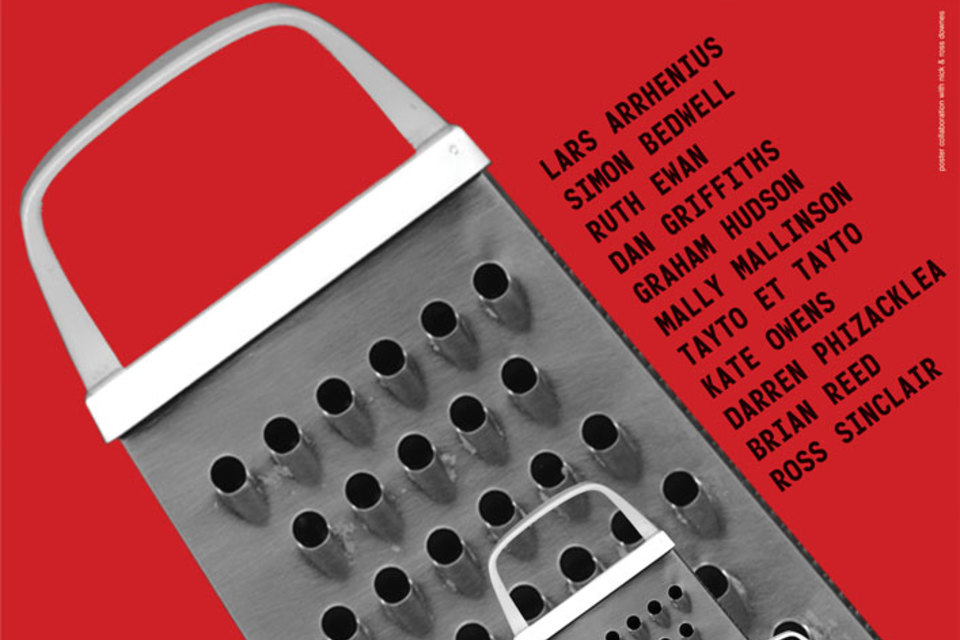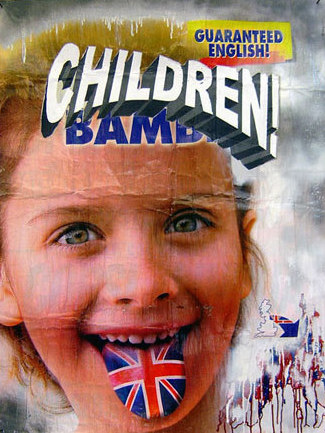Grate Britain
Lars Arrhenius | Simon Bedwell | Ruth Ewan | Dan Griffiths | Graham Hudson | Mally Mallinson | Tayto et Tayto | Kate Owens | Darren Phizacklea | Brian Reed | Ross Sinclair

Curated by Ross Downes
Britain's long tradition of satire, at once informative, consensus changing, piss taking and critical continues using various means to communicate opinions both moral and absurd. With all the difficulties inherent with post-everything times, satire makes social and political issues its focus through a populist model of humorous analysis and debunking that provides a no-nonsense public service disguised as comedy. From Gilray's governmental grotesques of the late 1800's to Orwell's 'Animal Farm' in the forties, Peter Cook and 'Private Eye' in the sixties to 'Spitting Image' in the Eighties and to the more current Chris Morris and 'Brasseye', satire has long been part of Britain's cynical national make-up both challenging and distrustful of the establishment.
Although primarily considered entertainment, satire has remained a relevant and necessary attitude in most cultural mediums through its insistence on recognising the truth and absurdity of the constructs of tradition that are either ineffective, stale or corrupt. Differing from entertainment's usual motives of escapism and audience inactivity, satire makes attempts to inform, educate and protest with the knowledge it talks to a social majority about issues directly affecting their lives, community and country. Within it can be found the remnants of idealism and enlightening cynicism that makes schools of thought such as socialism, humanism and anti-capitalism come together as an absurd theatre under the more liberated banner of humour freed from the constraints of 'manifesto mentality'.
The value of humour along with the ability it has to change consciousness when applied to specific issues and the generality of acknowledging 'truth' is an internationally renowned British trait (forth only to hooliganism, xenophobia and Marks and Spencers). Our understanding of politics and current affairs, rather than from 'independent' enquiries and published dossiers, is more likely informed by the likes of 'Bremner, Bird and Fortune', 'Mark Thomas' and the occasional pessimistic BBC hack who brings the injustices and daily hypocrisies to audiences. Centralised British politics and mutant parties in power have arguably made the satirists task all the more post-ideological. With party politics no longer recognised by the values and traditions that formed them and with understanding the complications and contradictions inevitable when expressing an idealist viewpoint, satire finds value in changes that may come from reacting to what is happening before expressing how and what to change.
